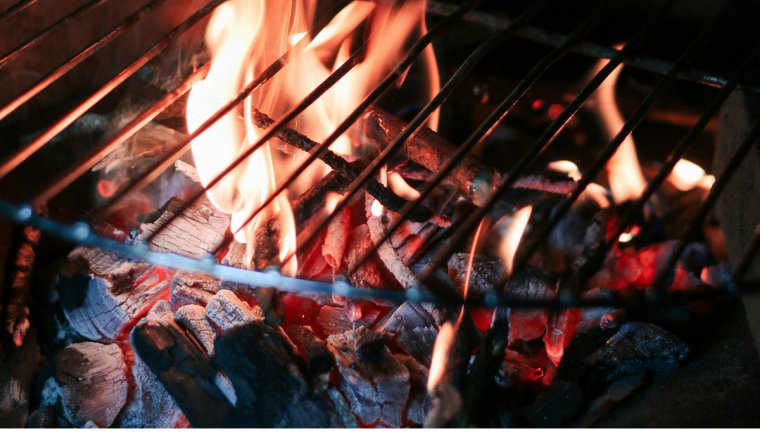In our Craft Capsules series, authors reveal the personal and particular ways they approach the art of writing. This is no. 205.

While I was growing up in Venezuela, Sunday was always a sacred day, but not in the Mass-attending ways of my Catholic peers. The grill was our church, my father the priest, a piece of punta trasera (picanha roast, here in the United States) our communion. The act of gathering around a kitchen table, drinks in hand, and telling stories has always been the way my family created shared memories. All three of us siblings now have a close relationship with food, none more than my sister, who became a classically trained chef and has worked in the food industry for over twenty-five years.
Those Sunday meals in Venezuela are also very much the reason why my debut novel, forthcoming next month from Little, Brown, is titled Freedom Is a Feast. As I discovered the plot of the book, way before the title had come to me, I often found food forcing its way into the narrative, which I recorded in exciting bursts of creativity. Writing those scenes made me feel like that ideal version of an author one imagines: overtaken by inspiration and unable to stop writing.
Apart from my own—let’s call it intense—love affair with food, I also found writing about eating to be an amazing tool for connecting with the reader. During my MFA, one of my professors, the amazing Elizabeth McCracken, always stressed the importance of finding your characters’ bodies. On the page, we have to fight the tendency to depict our characters as nothing more than floating orbs of interiority, merely recording what’s around them without feeling any of it. But the physical constraints that rule us in the real world must rule our characters in the fictional one. The best way I found to follow this truism is to engage fully with my character’s senses, especially the underused ones: smell, touch, and taste. And scenes involving food, I discovered, allowed me instant access to all of my characters’ senses, placing them firmly inside their bodies.
My early readers (MFA peers and professors) expressed feeling immersed, joyful, in these culinary moments in my fiction. I realized that the beauty of food in writing, as in real life, is not only its ability to connect directly with the body but to compel the mind. Food—in its taste, smell, and texture—can be transporting. It conjures thoughts and memories. It can send a character, in their interiority, to wherever you want to take them.
In Freedom Is a Feast, characters often find themselves in forms of confinement—physical, societal, ideological. But food allows them moments of metaphorical freedom. When Eloy, a young man sentenced to prison, burns the roof of his mouth on an empanada, for example, the experience reminds him of his home and of his mother. It even plays a literal role in one character’s freedom: Stanislavo attempts to escape political prison by consuming pig’s blood and faking an illness. When María cooks a quesillo and brings it to her estranged father, the smell of caramel and the pleasure of that first bite creates a connection between them that feels like an exhale in the narrative. In these sublime moments of physicality, when hunger gives way to satisfaction, characters become more like real people.
So the next time you’re stuck on a flat character, put a plate in front of them. Let them dig in, and see what it reveals about their present or their past. Buen provecho.
Alejandro Puyana moved to the United States from Venezuela at the age of twenty-six. In 2022 he completed his MFA at the Michener Center for Writers at the University of Texas in Austin. His debut novel, Freedom Is a Feast, will be published on August 20 by Little, Brown. His fiction has appeared in American Short Fiction, the American Scholar, New England Review, and other venues; his story “The Hands of Dirty Children” was selected by Curtis Sittenfeld for The Best American Short Stories 2020 (Mariner Books). He lives with his wife and daughter in Austin, Texas.
Art: Sarah Richer







